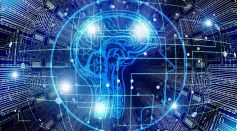Tags: Neuroscience

Materialist Neurologist: 'The Mind is Simply What the Brain is Doing’
[FACT CHECK] Science Says Face Masks Don't Cause Oxygen Deprivation, Neurological Damage

Motivation to Learn Declines With Age, Science Says

Happy Endings Could Mess Up Your Brain's Decision-Making, Study Says

Study Suggests People Make Better Choices When the Risk of Harming Others Is Likely

The Importance of Blood Tests for Alzheimer's Disease Patients: 2 Neuroscientists Explain the Recent Findings
[BREAKTHROUGH] Scientists Discover a Particular Protein That Could Calm the Brain
A Star Is Born: Some Individuals Are Musicians Since Birth, a Study Involving 6-month Infants Suggest

Learning Difficulties: Why Are They There?

The Link Between the Brain and Architecture

Study Says Having Goosebumps While Listening to Music Means your Brain is Special
Lego-like Therapeutic Brain Implants That Can Be Controlled by a Smartphone
Brain Scans of Convicted Murderers Differ from Other Prisoners, Study Says
Scientists Point which Part of the Brain is Responsible for Parental Behaviors in Frogs
Neuroscience and Computer Vision Collaborate to Better Understand Visual Information Processing
Early Detection of Alzheimer's Prior to Onset of Symptoms Now Possible
Zombie Pigs? Scientists Restore Brain Activity in Pigs Four Hours After Death
Brain Size Actually Matters In Terms Of Evolution, A Recent Study On Songbird Reveals
Good Time To Erase Bad Memories: It Is Possible To Delete Tragic Incidents Claim Scientists
Human Brain is as Powerful as Digital & Analog Computers Combined; Uses 90 Percent of its Capacity
Most Popular

Space Tourism Future: How Commercial Space Travel Will Transform Civilian Exploration

Universe Origin Revealed: Exploring the Latest Big Bang Science Theories and Discoveries

How Space Observation and the Solar Light Spectrum Make the Sun Look Different in Space Than on Earth

Tree Communication Explained: How Underground Fungi Networks Connect Entire Forests





